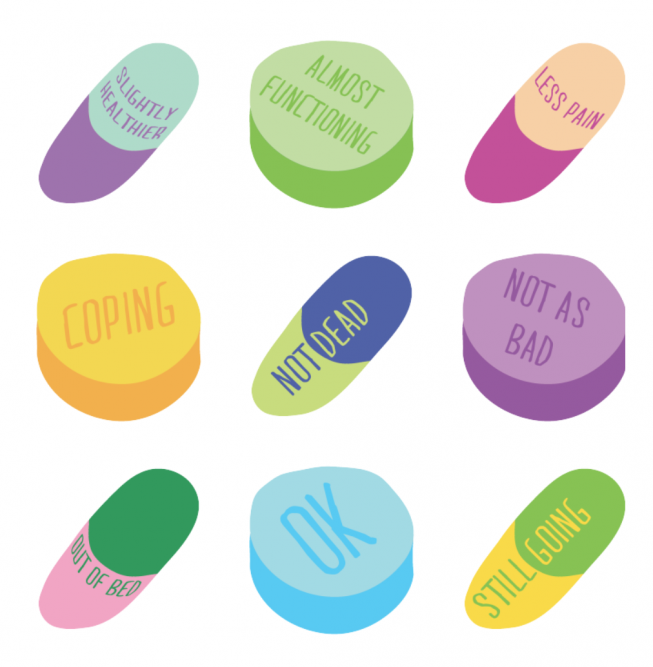I’ve written this article that has 10 Important things you should know about chronic illness to help educate those who want to learn about chronic illness. I want to spread awareness so that friends, family, employers, coworkers, and healthcare professionals can better understand chronic illness. My hope is that an increase in awareness will help strengthen relationships, reduce misunderstandings, and improve support systems for those with chronic illness.

10 Important things you should know about chronic illness
1. Nobody WANTS To Feel Sick
We don’t choose to feel sick. It happens! So if I cancel last minute, it’s because I really don’t feel well and it’s not just an excuse.
2. Many Doctors Don’t Understand Chronic Illness
Patients often have to spend precious time searching for a doctor who understands their illness and provides appropriate treatment options while their symptoms potentially worsen.
3. Being Unable To Work Is NOT a Vacation
We are struggling every day to do simple tasks: getting out of bed, getting dressed, making a meal, bathing, etc. Being sick is hard work.
4. Chronic Illness Can Trigger Many Emotions
Chronic illness itself can change the biochemical makeup of the mood control center in the brain. This can lead to depression and/or anxiety, which I think, comes with every illness.
5. The Symptoms of Chronic Illness Are Very Complex
The symptoms experienced by those with chronic illness vary depending on the illness. This can be extreme fatigue, pain, headaches, brain fog, nausea, and dizziness.
6. The Chronic Illness Fatigue Is Much More Than Being Tired
Fatigue is a common symptom in chronic illness. Dreaded fatigue can be easily triggered by simple daily activities or by more elaborate events such as holidays. It can take days, weeks, or even months to recover.
7. Brain Fog Is Extremely Frustrating
Brain fog is frustrating because it is a difficult symptom to describe. A cognitive dysfunction common in chronic illness. Those with brain fog often know what they want to say, but can’t find the thoughts or words to communicate it.
8. There Is a Greater Risk of Dangerous Infections
The immune system in those with chronic illness may be overactive and instead of attacking infections, the chronic illness immune system wastes time and energy fighting the body’s own organs, joints, nerves, and muscles. A minor cold in a healthy person could progress to a dangerous infection in someone with chronic illness.
9. Sensitivity to Smells Is Common
Certain smells including perfumes, colognes, cleaning agents, and smoke can trigger headaches, brain fog, nausea, and other symptoms in those with chronic illness.
10. It Takes a Lot of Effort to Manage Chronic Illness
Having a chronic illness is hard! Making sure we get adequate rest, avoid trigger foods, take medications at the correct times. It is understandable that sometimes we just want to just “take the day off”.

You can make a big difference in the lives of those with chronic illness by learning more about their symptoms and approaching them with compassion and support. Gaining an understanding of chronic illness will help make these conditions less “invisible.”
